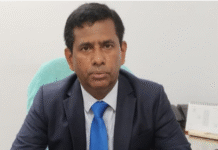
1.1 million Rohingya are still struggling to make ends meet in the Cox’s Bazar refugees camps
At a time when many wealthier nations around the world have been closing their borders to thousands of distressed refugees, Bangladesh has set an example by opening its arms to a huge number of Rohingyas forcibly displaced from Myanmar.
But while aid agencies at home and abroad are trying to raise funds to help Bangladesh meet the escalating costs of housing the refugees, around two-thirds of the estimated amount is yet to be sourced.
This means that despite the massive relief effort, the 1.1 million Rohingya are still struggling to make ends meet in the Cox’s Bazar refugees camps.
“The government, along with the NGOs and INGOs, is working to sort out the crisis while more aid is needed for both the displaced Rohingyas and locals,” Mohammad Abul Kalam, the Refugee Relief and Repatriation Commission (RRRC) Commissioner, said.
To help rally the international community around the Rohingya cause, the Inter Sector Coordination Group (ISCG) launched a Joint Response Plan (JRP) last March, setting a target to raise $950.8 million by the end of this year to ensure better assistance and safer camp conditions.
However, according to Financial Tracking Service (FTS) – a global platform which tracks humanitarian aid flows – only $318.6 million of this total had been sourced by August 18.
Speaking at the end of his visit to Bangladesh in July, United Nations High Commissioner for Refugees Filippo Grandi called for “greater international support and solidarity” for the Rohingya refugees and their Bangladeshi hosts.
The high commissioner travelled to Dhaka and Cox’s Bazar as part of a high profile delegation which also included UN Secretary General António Guterres, World Bank Group President Jim Yong Kim, and UNFPA Executive Director Natalia Kanem.
“We are continuing to run an emergency response which has been compounded by the urgency of reinforcing shelters and relocating people during the monsoon,” Grandi said, while emphasizing the need to also address medium-term issues for the refugees and the host community after the monsoon ends.
The overcrowded conditions in the camps are adding to the strain on health and sanitation services, and heightening protection risks such as gender-based violence and human trafficking.

Recent adverse weather conditions during the monsoon season, meanwhile, have left the camp community even more vulnerable and have exacerbated the need for more food and shelter.
Over a million mouths to feed
In September 2017, at the start of the current crisis, Prime Minister Sheikh Hasina visited the refugee camps in Cox’s Bazar and said Bangladesh could provide for the Rohingya who were pouring across the border from Myanmar.
This was despite Bangladesh being one of the world’s most natural disaster-prone and overcrowded countries.
“If we can feed 160 million people, we can feed another two or five or seven hundred thousand people,” she said.
The Rohingya crisis then became the world’s fastest-growing refugee emergency in 2017.
One year on, nearly 700,000 Rohingyas have now fled to Bangladesh, adding to the 400,000 who were already being sheltered in the camps of Cox’s Bazar.
Just feeding this number of refugees each day costs around $800,000, according to the World Food Programme (WFP).
“The challenges are simply to provide food for so many people,” WFP Country Director in Bangladesh Christa Rader told the Dhaka Tribune.
“We only have three food commodities. People do not want to live for months or years on rice, pulses and oil, so we have to bring diversification.”
Rader said such diversification can be brought through the use of electronic vouchers.
“These are cards which are uploaded every month and contain about Tk750 ($9) per person, per month. A household can purchase from 19 food items in shops – so this is what we aim to work towards,” she said.
The government plays a significant role in managing the overall activities in the refugee camps, including food distribution.
Host communities also in crisis
Due to the influx of Rohingyas outnumbering locals of Ukhiya and Teknaf upazilas in Cox’s Bazar, the local host communities are also facing some other socio-financial problems.
The Inter Sector Coordination Group (ISCG) says it has objectives to provide “timely lifesaving assistance and protection”, as well as improve the living conditions of Rohingya refugees and the affected host communities.
It needs to ensure the wellbeing and dignity of the Rohingya refugees and the affected host communities, and to support environmentally sustainable solutions to the crisis.
To this end, the Bangladesh government requested the NGOs and INGOs to provide at least 25-30% of their services to the host community in the forms of infrastructure work, increasing the capacity of the educational system, and providing livelihoods to the locals.
However, the aid agencies have been finding it difficult to provide the required support to the host communities, in addition to facing challenges to meet the needs the Rohingyas.
Source: Dhaka Tribune.









